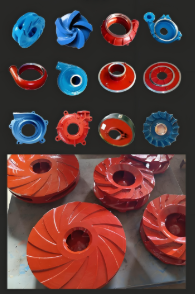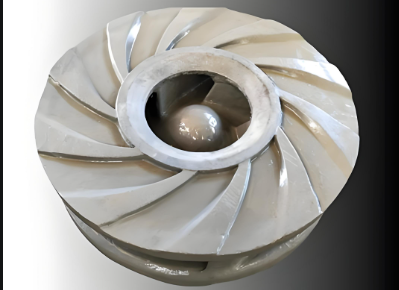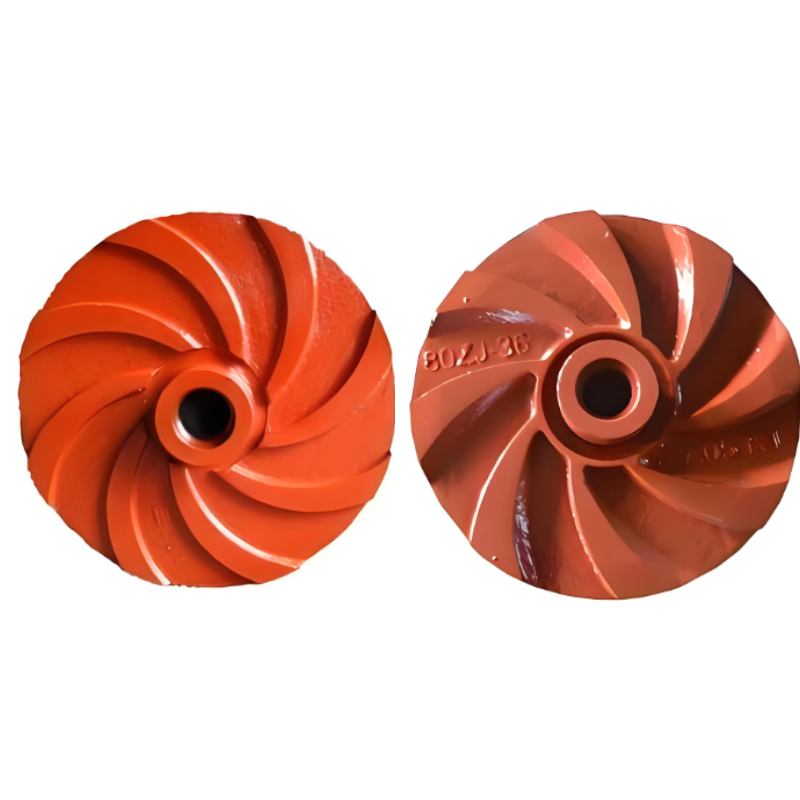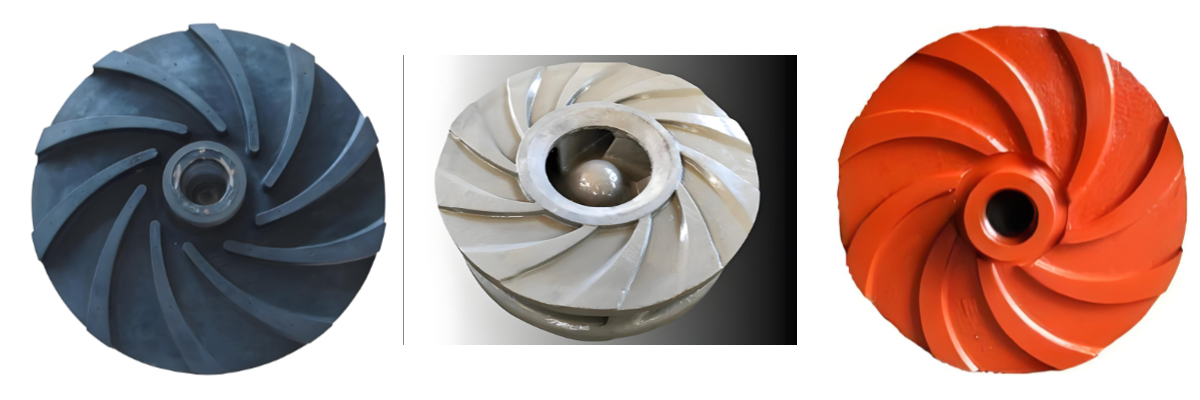Slurry Pump Impeller For Sale
High wear resistance
Material selection: Wear-resistant materials such as high chromium alloys (such as Cr27, Cr30), rubber (for soft particles), ceramics or polyurethane coatings are usually used to significantly extend the service life of the impeller in abrasive media.
Design optimization: The flow channel surface is smooth to reduce particle erosion; some impellers use thickened design or replaceable wear-resistant plates to further resist wear.
The impeller of the slurry pump is the core working component, which generates centrifugal force by rotation to transport solid-liquid mixed media. The following is the key information:
Structural type
The impeller usually adopts a closed structure (with covers on both sides) and a wide flow channel, which is suitable for conveying slurries containing large solid particles (such as sludge and gravel). Unlike the narrow flow channel design of chemical pumps and clean water pumps, the impeller of the slurry pump can better cope with blockage and particle impact.
Number of blades
The common number of blades is 5-12, and the back-bend design can reduce energy loss. Different numbers of blades will affect the efficiency and flow capacity of the pump, and need to be selected according to specific working conditions.
Seal design
A labyrinth gap seal is used between the impeller and the rear guard plate to reduce slurry leakage; the back blade structure discharges the reflux slurry in time, improves volumetric efficiency and reduces the risk of erosion.
Applicable scenarios
The wide flow channel and anti-clogging characteristics of the impeller make it perform well in working conditions containing impurities such as mining, metallurgy, dredging, etc., and can continuously transport high-concentration slurry.









